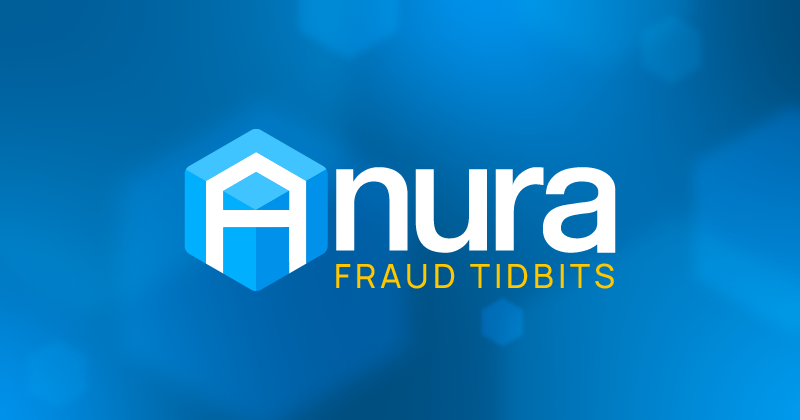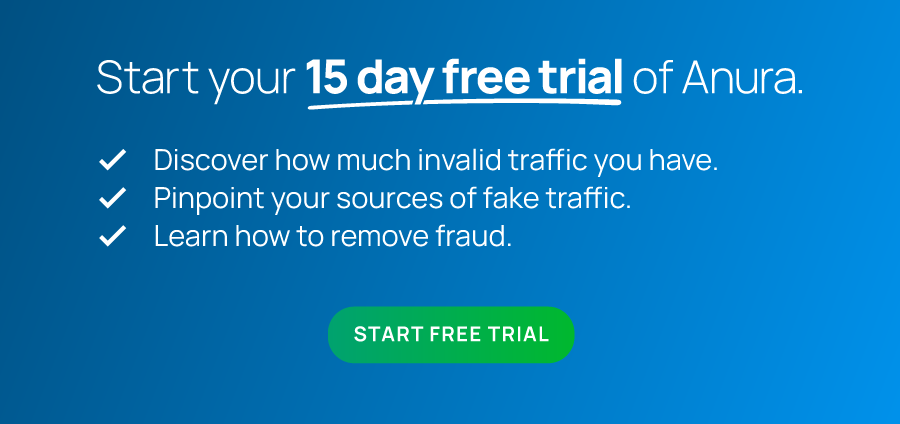Affiliate Fraud Tactics Exposed: 2026 Playbook to Protect Your Program

TL;DR
- Affiliate fraudsters are becoming more advanced in 2026, using AI-driven tactics, cloaking, and geo-spoofing to exploit affiliate programs.
- Strong affiliate fraud prevention is now essential to protect budgets, performance data, partners, and customer trust.
- Chargeback prevention affiliate fraud strategies help reduce financial losses tied to fraudulent conversions and stolen payment activity.
- Continuous monitoring, deeper vetting, and environmental analysis are critical to stopping evolving threats before they damage your program.
In the world of affiliate marketing, fraudsters continually develop sophisticated methods to exploit programs. Staying informed about these emerging threats is crucial for maintaining the integrity and profitability of your affiliate initiatives. This article explores the latest threat landscape of 2026 and offers actionable strategies for robust affiliate fraud protection. As we move into 2026, businesses must strengthen affiliate fraud prevention to keep up with increasingly adaptive affiliate fraudsters who exploit every gap in tracking, attribution, and partner validation.
The Evolution of Affiliate Program Fraud
Affiliate marketing has long been a target for fraudulent activities. As detection mechanisms improve, so do the tactics employed by fraudsters. In 2026, several advanced methods continue to challenge traditional affiliate marketing fraud detection and prevention strategies. Modern affiliate fraudsters now combine automation, identity, spoofing, and payment abuse patterns, making affiliate fraud detection essential for financial protection, especially for programs vulnerable to chargeback prevention affiliate fraud issues.
Emerging Fraud Tactics in 2026
These attacks continue evolving, and affiliate fraudsters in 2026 now blend automation, obfuscation, payment-risk manipulation, and cloaking to bypass traditional monitoring. Their goal is to exploit performance models, commission structures, and checkout workflows.
1. AI-Powered Fraud Schemes
Fraudsters are leveraging artificial intelligence to mimic legitimate visitor behavior, making it challenging to distinguish between genuine and fraudulent traffic. These AI-driven bots can simulate clicks for submissions and complex multi-step interactions, effectively bypassing conventional detection systems. These AI-generated interactions significantly complicate affiliate fraud prevention because fraudsters can mimic legitimate behavior across multiple funnel points.
2. Geo-Spoofing
By manipulating IP addresses, online fraudsters can disguise the true origin of their traffic. This tactic, known as geo-spoofing, allows them to appear as though they are operating from trusted locations, thereby evading geo-based filters and restrictions. Geo-spoofing is especially dangerous for programs struggling with chargeback prevention and affiliate fraud, since disguised traffic often leads to fraudulent purchases and commission payouts.
3. Fake Social Influencers
The influencer marketing boom has given rise to fake influencers who use purchased followers and engagement to feign credibility. In 2026, affiliate fraudsters increasingly use AI-generated personas and synthetic engagement, making it harder than ever for brands to validate influencer authenticity.
4. Affiliate Marketing Scams
Scammers create fake affiliate programs or hijack existing ones to siphon commissions, drain budgets, and damage brand reputation.
Strategies for Affiliate Fraud Protection
To safeguard your affiliate program against these advanced threats, consider implementing the following:
1. Advanced Fraud Detection Solutions
Invest in sophisticated affiliate marketing fraud detection tools capable of analyzing the visitor environment in real time. Anura’s platform offers unparalleled accuracy in identifying fraudulent activities, ensuring that only genuine interactions are accounted for. As the first and only ad fraud detection solution with an Accuracy Guarantee, Anura provides 99.999% accuracy when identifying a visitor as bad. Strong detection also plays a significant role in chargeback prevention and affiliate fraud, blocking traffic tied to stolen credentials or payment abuse.
2. Comprehensive Affiliate Vetting
Before onboarding new affiliates or influencers, conduct thorough background checks. Analyze traffic sources, audience authenticity, and historical performance to ensure alignment with your program’s standards.
3. Continuous Monitoring and Analytics
Regularly monitor affiliate activities using detailed analytics. Look for anomalies such as sudden spikes in traffic, unusual conversion rates, mismatched geographies, or payment-related red flags. These patterns often signal the work of affiliate fraudsters.
4. Educate and Collaborate
Foster open communication with your affiliates. Educate them about acceptable practices and the importance of maintaining program integrity. Collaborative relationships help deter potential fraudsters and promote transparency. Collectively, these steps create the foundation for stronger affiliate fraud prevention and help insulate your program from high-cost chargeback schemes driven by affiliate fraudsters.
Understanding the Modern Affiliate Fraudster
Today’s affiliate fraudsters are more organized and data-savvy than ever. Many operate as part of coordinated groups that specialize in manipulating tracking systems, faking conversions, and driving non-human traffic. These bad actors exploit gaps in affiliate program fraud detection to siphon revenue while appearing legitimate. They use sophisticated methods, proxy networks, and even AI-generated personas to avoid being flagged.
These modern affiliate fraudsters collaborate in networks, share evasion tools, and use advanced masking to avoid affiliate fraud detection, making continuous monitoring and real-time analysis critical.
The Hidden Costs of Affiliate Fraud and Chargeback Prevention in 2026
Affiliate fraud doesn’t just waste marketing dollars; it can lead to serious financial consequences through chargebacks. In these schemes, fraudsters often use stolen payment information to generate fake purchases that trigger commissions. When the legitimate cardholder disputes the transaction, the business is left covering both the chargeback and the lost commission. This is where strong chargeback prevention affiliate fraud strategies become essential, helping businesses stop fraudulent purchases before they trigger costly disputes.
Implementing strong affiliate fraud detection measures can stop this before it starts. Preventing chargeback-related affiliate fraud not only protects revenue but also preserves your reputation with payment processors and partners. Stronger affiliate fraud prevention minimizes the risk of commission theft, chargebacks, and reputational damage.
Experience Unmatched Accuracy with Anura
At Anura, we stand by the accuracy of our fraud detection capabilities. Our Accuracy Guarantee ensures 99.999% accuracy when identifying a visitor as fraudulent, setting a new industry standard. We invite you to experience the effectiveness of our platform firsthand with a 15-day free trial. Discover how the Anura platform can fortify your affiliate program against emerging threats and drive authentic engagement.
As affiliate fraudsters continue to evolve their tactics in 2026, staying vigilant and proactive is essential. By understanding these emerging threats and implementing robust affiliate fraud prevention measures, you can protect your program’s integrity and ensure long-term success in the dynamic world of affiliate marketing.
FAQs: Affiliate Fraud Protection
What is affiliate marketing fraud?
Affiliate marketing fraud involves deceptive practices to earn commissions, such as fake traffic, fraudulent conversions, or click fraud.
How do affiliate program fraud schemes work?
Fraudsters use methods like cookie stuffing, fake leads, and traffic laundering to steal commissions from legitimate advertisers.
What are affiliate click fraud tactics?
These involve bots or real people generating fake clicks to inflate affiliate earnings.
What is chargeback prevention affiliate fraud?
This occurs when fraudsters manipulate transactions to avoid chargebacks, costing advertisers and affiliate networks money.
How do bots impact affiliate marketing campaigns?
Bots drive fake traffic and conversions, distorting analytics and draining budgets.
Who are affiliate fraudsters?
Affiliate fraudsters are individuals or groups who manipulate affiliate programs through deceptive tactics such as fake leads, bot-driven clicks, and commission hijacking to earn unearned payouts.
What is affiliate click fraud?
Affiliate click fraud involves bots or individuals repeatedly clicking on affiliate links without any intention of converting, draining ad spend and distorting performance metrics.
How does affiliate fraud detection & prevention work?
Affiliate fraud detection and prevention solutions, like Anura, use real-time environmental analysis and traffic validation to identify and block fraudulent activities before they impact your campaigns.
What is affiliate marketing fraud protection?
Affiliate marketing fraud protection encompasses tools and practices designed to safeguard affiliate programs from bots, fake visitors, and invalid conversions. The best solutions, like Anura, ensure legitimate visitors are never blocked.

